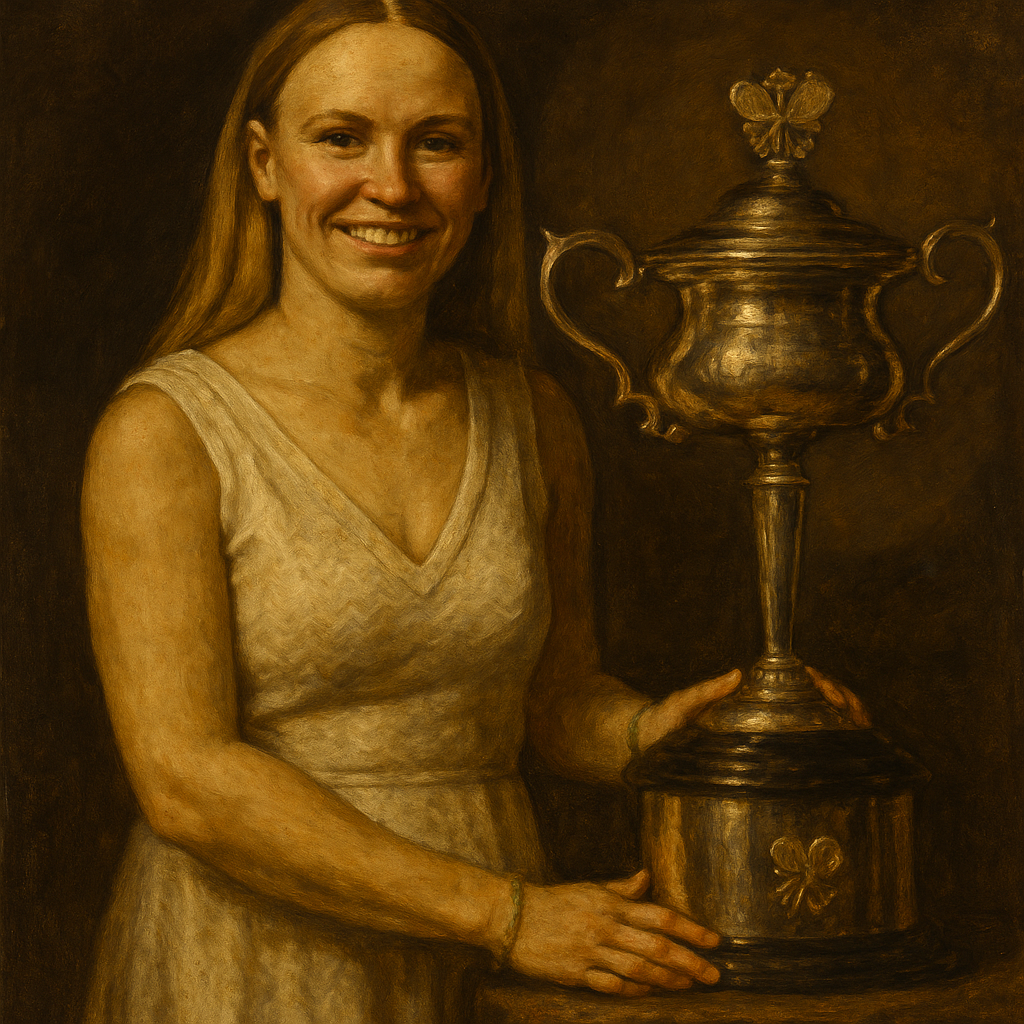Former Australian Open champion Caroline Wozniacki has launched a fiery public rebuttal against a television pundit, accusing him of "stirring the pot" and creating unnecessary drama during her return to Grand Slam tennis at Melbourne Park.
The Spark: A Commentator's On-Air Jab
The row ignited during a broadcast segment where pundits were discussing the allocation of wildcards for the 2024 Australian Open. Wozniacki, who came out of a three-and-a-half-year retirement in the summer of 2023, received one of the coveted main-draw wildcards. During the discussion, commentator and former player John Wertheim was reported to have questioned the merit of the decision, suggesting that the wildcard was given based on Wozniacki's name recognition and past achievements rather than her current form, implying it deprived a younger, perhaps more deserving, player of the opportunity.
The remarks did not sit well with the 2018 champion. Wozniacki, known for her fierce competitiveness and straightforward nature, did not wait long to respond. Taking to social media platform X (formerly Twitter), she posted a lengthy and pointed statement directly addressing the criticism.
In her post, Wozniacki wrote, "It's disappointing to hear a commentator I respected try to create a narrative that is simply not true. To suggest I 'stole' a spot from a younger player is not only inaccurate but disrespectful to the work I've put in to make this comeback."
Wozniacki's Point-by-Point Rebuttal
The Danish star did not stop at a general expression of disappointment. She systematically dismantled the argument against her wildcard, presenting a clear case for why her inclusion was justified. Her response highlighted several key points that showcase the value a player of her stature brings to a tournament, even after a lengthy hiatus.
Firstly, Wozniacki pointed to her recent results since returning to the tour. She reached the fourth round of the US Open in 2023, defeating two players ranked in the top 20 en route. This performance, she argued, demonstrated that she was not merely a "past champion" but a current and competitive force on the WTA Tour.
Secondly, she addressed the "younger player" argument head-on. Wozniacki stated, "The Australian Open wildcard committee has a process, and they award wildcards for a variety of reasons. To act as if there is only one 'deserving' path is naive. I earned my ranking back by playing smaller tournaments, and this wildcard is a recognition of my legacy and the draw I bring to the event."
She further elaborated on the tangible benefits a returning major champion brings to a tournament, which the organizing body rightly considers. These include:
- Increased viewership and ticket sales: A recognizable name like Wozniacki's attracts fans and media attention.
- Inspiration and narrative: Her comeback story is a powerful element of the tournament's overall appeal.
- Competitive integrity: Her recent results prove she is not there to make up the numbers.
A Broader Debate on Wildcards and Legacy
This public spat has reignited the perennial debate in tennis surrounding the allocation of wildcards. The system is inherently subjective, balancing multiple objectives: rewarding past champions, promoting local talent, and inviting players who will enhance the commercial and entertainment value of the event. Wozniacki's case sits squarely at the intersection of these competing priorities.
Many veterans and analysts have come to Wozniacki's defense. They argue that a player who has reached world No. 1, won a Grand Slam, and has 30 WTA titles to her name has more than earned the right to a wildcard upon her return. The notion that she is "taking" a spot is seen by many as a flawed perspective, as the wildcard system exists outside the strict meritocracy of the ranking system for precisely these scenarios.
In a follow-up interview, Wozniacki expanded on her initial comments, stating, "I love this sport, and I came back because I believe I can still compete at the highest level. Commentary that focuses on creating controversy instead of celebrating the game does a disservice to everyone involved."
The Pundit's Response and Fallout
In the wake of Wozniacki's angry reply, the commentator in question has remained largely silent on the matter, though sources close to the broadcast team suggest the comments were intended to be more of a debate point than a personal attack. However, the damage was done. The exchange has dominated tennis news cycles, shifting focus away from the on-court action in the early rounds of the Australian Open.
The WTA has not issued an official statement, as the matter involves a television personality and not a direct conflict between players or with the organization itself. However, the incident highlights the increasing power players have to control their own narratives through social media, directly challenging traditional media narratives in real-time.
Conclusion: A Champion Defending Her Court
Caroline Wozniacki's forceful public rebuttal is more than just a reaction to a single critic; it is a statement of intent. It signals that the 33-year-old is not returning to the tour for a farewell tour but is here to compete and be treated as a serious contender. By defending her wildcard so vehemently, she has reaffirmed her belief in her own right to be on the sport's biggest stages.
The incident serves as a reminder of the delicate relationship between athletes and the media, and the fine line pundits walk between analysis and provocation. As Wozniacki continues her campaign in Melbourne, one thing is certain: she has made it clear that she will not let her comeback be defined by anyone else's narrative. Her performance on the court will now be the ultimate reply.

